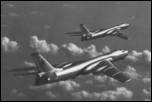The original stomping grounds of long dead pirates, the myriad gulfs, bays and channels of the Caribbean Sea still hold many dangers. Although the region is one of the world’s largest oil production areas, contains the globally vital economic link of the Panama Canal, and is home to a thriving cruise ship and tourism industry, the underlying causes of conflict - poverty, corruption, and political instability - remain ever-present.
During the Cold War, the Soviet Union exerted strategic pressure against the United States through its client states of Cuba and Nicaragua. The totalitarian regime in Havana, armed and encouraged by Moscow, could potentially wreak havoc among the region’s sea lanes, distracting and diverting critical NATO forces away from a war in Europe. Leftist insurgencies in Nicaragua and other vulnerable nation states could only aggravate America’s headaches.
Today, the old Cold War hazards have transformed into 21st century perils, none of them altogether new. The new client state of the Russian Bear is Venezuela. Leftist guerrillas are now narco-terrorists. And the old grudge match between the USA and Cuba remains an unsettled score.
Keeping the Lights On

In organizational parlance, "Keeping the Lights On," means to stay in business, especially under tough or trying circumstances. Given the world's current troubles, this closely describes the dilemma of modern navies as governments make hard decisions between defense and economic spending. Add to that noxious brew the touch of a "no-notice" crisis and things are liable to get very interesting.
Venezuela 2010: An ever-defiant Hugo Chavez sees opportunity in the global draw-down of American presence in the Caribbean and declares an expansion of his nation's Economic Exclusion Zone (EEZ). Citing maritime security concerns, Chavez uses his weekly radio show to proclaim that unprecedented levels of gun-running and drug smuggling from neighbouring states have forced his hand in order to secure the safety of the Gulf area.
Venezuelan Coast Guard elements are openly harassing and stopping legitimate traffic in transit through the zone. Any vessels failing to comply are subject to immediate use of lethal force. Not surprisingly, intelligence sources note that Cuban, Russian, and certain other nationalities are being given a free pass. Despite the obvious dangers in fleeing the illegitimate blockade, several ships have refused to submit and are attempting to exit the area through the North and East passages. SouthCom has ordered 2nd Fleet to stand ready and prepare operations for upholding Freedom of Navigation principles.
Author: Herman Hum and Armando J. Heredia (a.k.a. Juramentado)
Dine and Dash

Venezuela has finished it's progression towards a Communist dictatorship after purging the political hierarchy of any remaining opposition and nationalizing the last few privately owned industries in the country. Numerous company leaders, foreign workers, and political opposition members have been arrested. Meanwhile, the Venezuelan government has increased its support of FARC terrorist attacks and kidnappings in neighbouring Colombia with armed conflict becoming a daily occurrence inside Colombia and along the two countries' mutual border. Foreign nationals were originally detained for 'protective' reasons. However, there has been no indication if they will be released.
A small group of foreign workers and opposition party members have managed to escape capture thus far and are awaiting a way out of the country. The only path of escape for these wanted individuals depends on the lone unit in the area -- an American destroyer.
This scenario was originally written by JC Pope (a.k.a. NefariousKoel) for Harpoon Classic and has been re-written for Harpoon3 and the PlayersDB with the consent of the author.
Many thanks to Freek Schepers for his kind assistance in testing this scenario.
Author: Herman Hum
Harpoon3.6.3 users can get the:
Complete Harpoon 3.6.3 Library
These scenarios can also be found on:
SubSim
HarPlonkHQ















 Home of the Harpoon3
Home of the Harpoon3  FilesOfScenShare
FilesOfScenShare







